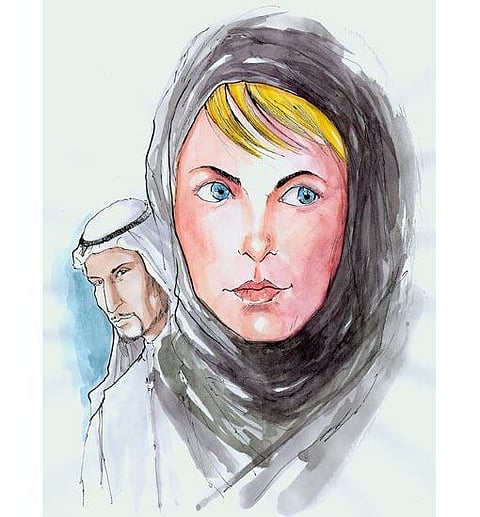What makes an Emirati?
A public debate over the nationality of children fathered by foreigners

It never ceases to amaze me that an old UAE national can marry a young girl from South East Asia, and give all his children born from her Emirati nationality, while the children of Emirati women married to non-UAE nationals are deprived of this right!"
These were the simple words of an Emirati woman expressing her disbelief at the apparent lack of equality.
Another woman expressed much the same sorrow, saying, "Mary, Jean and Julie's children will acquire UAE nationality at birth because the fathers of their children are nationals, while Emirati women cannot give their nationality to their children — even if their husbands are GCC nationals".
This is a small sample of what caught my attention while reading an article in Al Ittihad newspaper, which is published in Abu Dhabi, about the debate on whether UAE mothers married to foreign men should be allowed to pass their nationality on to their children.
This issue is important for both UAE and GCC nationals alike. It is a topic discussed at many gatherings, with people taking sides, as usually happens in such cases.
My interest was piqued as I have written about similar issues to do with naturalisation and people without documents struggling to prove their identity for over two decades. Thousands of other people read the Al Ittihad article and hundreds expressed their opinions.
It also seems that this public debate is being encouraged by the state. This impression was bolstered by Dr Zubaidah Jasem, Director of Research and Studies in the Ministry of Interior and head of the "fatwa" department, in an article that appeared in Al Ittihad on February 2, in which she said that there have been high-level directives since 2006 for the Naturalisation Department to create a database about the people in this category at home and abroad, so as to complete the data to start giving these people UAE nationality. .
Regrettably this information is not publicly available.
Loyalty
In the comments, which were mostly made in the local dialect and in the popular style people discussed the issue referencing political and legal theory dating from the time of Plato and Aristotle right up to our modern age, on the concept of the nation-state. They discussed issues related to loyalty, affiliation and sovereignty.
Some were suspicious about the loyalty of children born to foreign fathers, and others were afraid that the national identity would be lost, while a third category considered that giving nationality to the sons of UAE women would encourage more Emirati women to marry foreigners.
Those in favour of granting UAE nationality to this category of people considered mothers the source of loyalty, arguing that the children would be raised in the UAE, study in its schools and salute its flag. They added that countless fathers regarded as aliens are in fact nationals from GCC countries that are bound to the UAE with close ties. Moreover, there are those in this category who are the sons and daughters of divorcees and widows. They have been raised and brought up in this good land and it is due to no fault of their own that they have not attained UAE nationality.
Without knowing it, they discussed all the rules that establish the basis of nationality, such as the right of region and the right of blood, and debated over the meaning of these rules.
Some also discussed the idea of equality between the sexes. Many readers said the children should be treated the same regardless of whether their mothers or fathers were foreigners. Others said that sons and daughters have to follow their fathers in issues related to lineage and nationality, whereas women follow their spouses under Sharia.
Culture was used as an argument in this discussion — either to enhance a point of view or to reject it. Marriage was said to be encouraged by parents, and becoming a spinster was described as a stigma all women should seek to avoid.
So what can a woman do if she is not asked to marry a man of her own nationality, and accepts the marriage proposal of an alien? Should she be punished by her children being deprived of her nationality?
Others considered that Emirati women choose to marry foreigners, and are fully aware of the consequences. The argument here is that such women will have to shoulder responsibility for the consequences of their choices.
Ulterior motives
Those opposed to granting nationality to this category of people are fearful that if this door is opened, "marriages of convenience" will take place — especially if the spouse is assured that his children will obtain all the advantages that come with Emirati nationality.
These people believe that some foreigners are motivated to marry Emirati women by greed. Where were all these men before the oil boom, when Emiratis were not rich, they ask.
Few people mentioned that naturalising the children of Emirati mothers could help to address the population imbalance, as witnessed in other countries, although naturalising GCC nationals is accepted in general.
One woman concluded by saying, "Our Shaikhs will surely solve this issue after reading people's opinions".
Dr Mohammad Hussain Al Yusefi teaches at Kuwait University.



